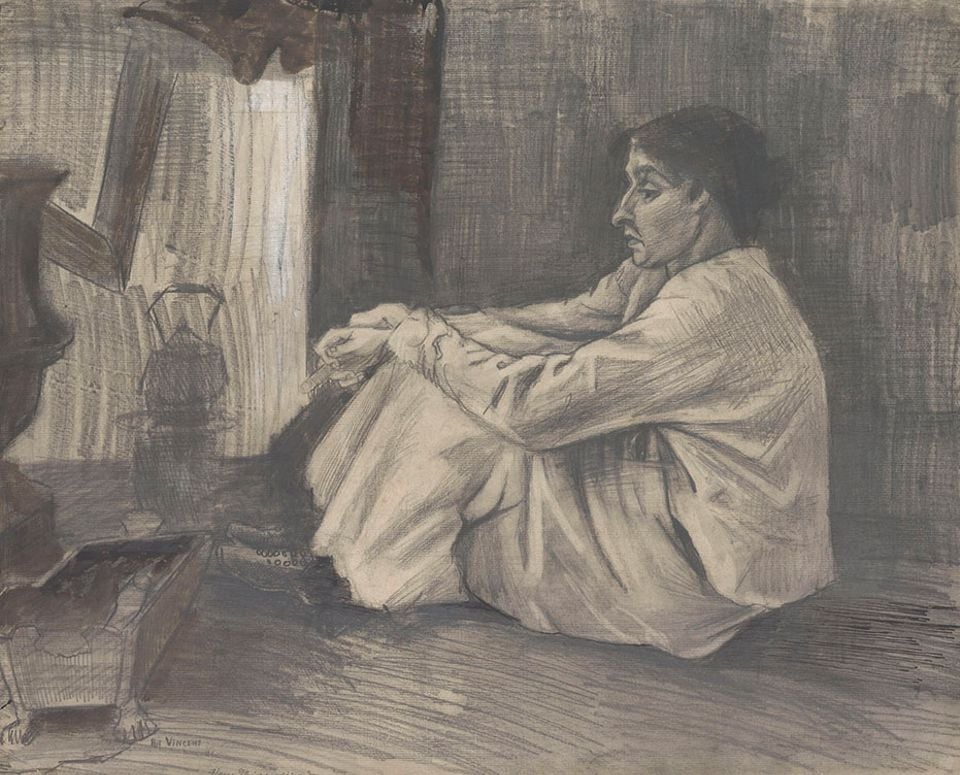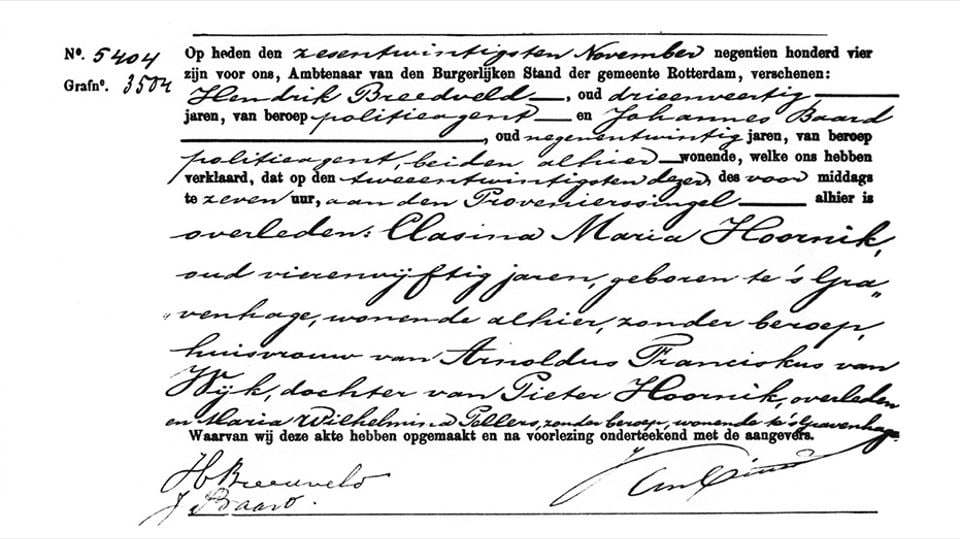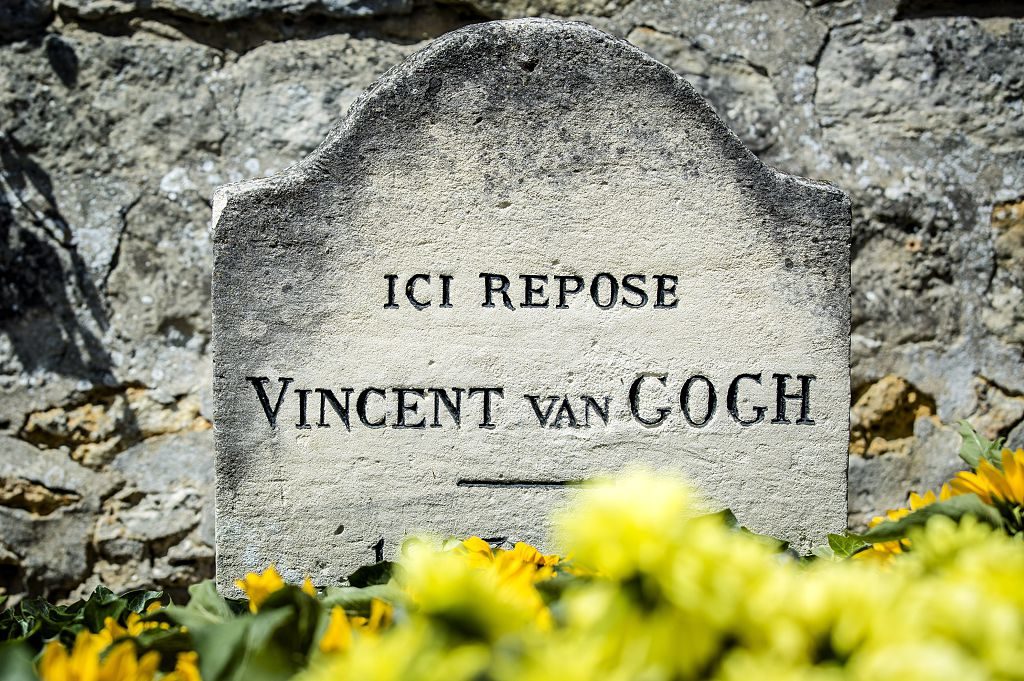People
The Tragic Fate of Vincent van Gogh’s Girlfriend Is Revealed in a New Book
Van Gogh expert Martin Bailey recounts the difficult life of Sien Hoornik.

Van Gogh expert Martin Bailey recounts the difficult life of Sien Hoornik.

Sarah Cascone

In his short, 37-year life, Vincent van Gogh had only one live-in girlfriend, Sien Hoornik, a prostitute he hired to be his model. And just 21 years after he shot himself in a field in northern France, Hoornik also died at her own hand—just as she told the artist she would.
The story, told in Van Gogh expert Martin Bailey’s new book, Living with Vincent van Gogh: The Homes & Landscapes that Shaped the Artist (published today by White Lion Publishing), fleshes out more fully a story that was only known previously in part.
When Hoornik met the artist, she was a pregnant single parent. Eventually, she and her young daughter moved into his humble apartment in The Hague, where she gave birth to a son, named Willem after the artist’s middle name, even though he was not the father.
About a year after they began living together, Hoornik told Van Gogh that she had become a “whore” out of laziness, predicting that “it’s bound to end up with me jumping in the water,” Bailey recounts in the Art Newspaper.

The death certificate for van Gogh’s one-time girlfriend, Clasina (Sien) Maria Hoornik (November, 22 1904). © Collectie Staadsarchief Rotterdam.
Hoornik ultimately drowned herself in 1904. Although Van Gogh scholar Jan Hulsker had previously written of her suicide, the exact date and circumstances had never been identified. Bailey tracked down her death certificate in the Rotterdam municipal archive, matching the death date to reports in a local newspaper about a woman who had drowned.
Hoornik did not have an easy life. She lost two children in infancy, and each of the four men who impregnated her ultimately abandoned her. Although Van Gogh expressed a desire to marry her, they never wed.
“I don’t want her to feel abandoned and alone for a moment longer… I feel a tender love for her and hold her children dear,” the artist wrote in a letter to his brother, Theo. Van Gogh recognized Hoornik’s fragile state, adding that he feared that if they didn’t marry, “hardship will make her take the same road that ends in the abyss.”

Sunflowers on the grave of Dutch painter Vincent van Gogh. Photo by Bart Maat/AFP/Getty Images.
The two parted ways about 18 months after they first met, in part because Hoornik did not share Van Gogh’s voracious love of art and literature—but also because of Theo’s opposition to the relationship (he objected to his brother marrying a former prostitute). After they broke up, Hoornik sent her two living children to be raised by family members.
In 1901, at the age of 51, she finally married for the first time, to Arnoldus Franciscus van Wijk, 11 years her junior. Bailey’s research turned up a newspaper article in which he was asked to identify his wife’s exhumed body a week after her death, by which time the body was in a state of decay.